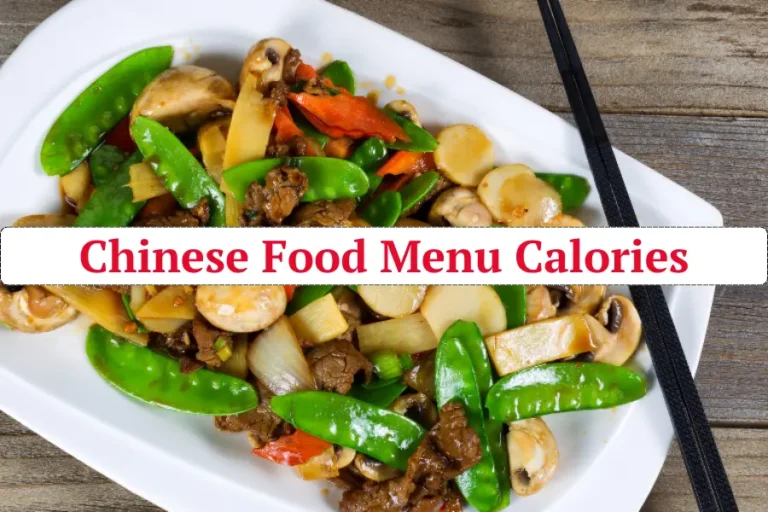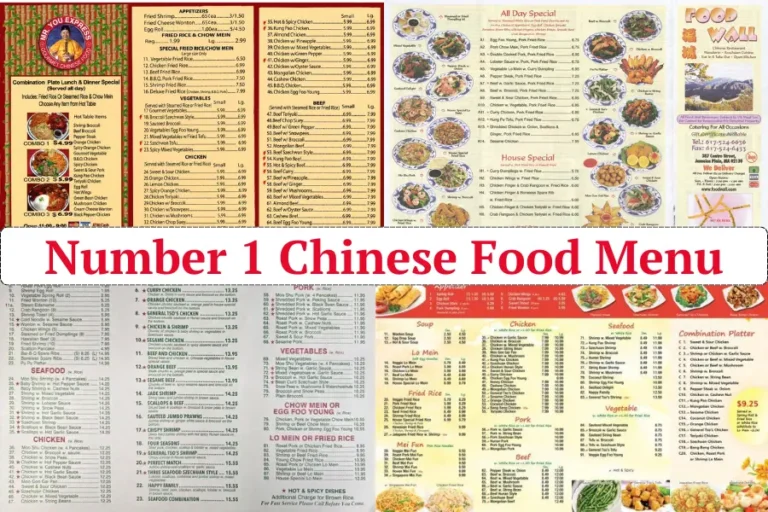Can I Eat Chinese Food While Pregnant? A Comprehensive Guide for Moms-to-Be

Pregnancy is when every bite counts, as your diet directly impacts your baby’s development. This makes dietary considerations crucial. What you eat can influence your energy levels, mood, and the health of your growing baby. It’s natural to worry about what’s safe to eat, especially regarding diverse and flavorful cuisines like Chinese food. As an expectant mother, you might wonder, “Can I eat Chinese food while pregnant?” It’s a common worry—you want to enjoy your favourite dishes without compromising your baby’s health.
We completely understand your concern. The good news is that you don’t have to give up on Chinese cuisine during pregnancy. In this article, we’ll walk you through everything you need to know to safely enjoy Chinese food while expecting. From understanding which dishes are safe to eat to knowing what ingredients to avoid, we’ve got you covered. With the right information, you can indulge in your cravings without any worries. So, let’s dive in and explore how you can savour those delicious Chinese flavours safely during pregnancy.
| Chinese Dish/Ingredient | Safety During Pregnancy | Tips for Safe Consumption |
|---|---|---|
| Stir-Fried Vegetables | Safe | Ensure vegetables are thoroughly cooked and not raw. |
| Steamed Dumplings | Safe | Choose dumplings with fully cooked fillings. |
| Chicken and Broccoli | Safe | Ensure chicken is well-cooked; opt for low-sodium sauce. |
| Raw Fish (Sushi) | Unsafe | Avoid raw fish to prevent bacterial infections. |
| High-Mercury Fish (e.g., Swordfish) | Unsafe | Choose low-mercury fish like salmon or shrimp. |
| Soy Sauce | Safe in moderation | Opt for low-sodium soy sauce; use sparingly. |
| MSG (Monosodium Glutamate) | Generally safe, but best to avoid | Request MSG-free dishes when ordering. |
| Chinese Buffet | Caution advised | Choose freshly cooked items; avoid foods that have sat out. |
Is It Safe to Eat Chinese Food During Pregnancy?
Yes, in general, it’s safe to eat Chinese food while pregnant, as long as you make informed choices. The key is ensuring the food is freshly prepared, well-cooked, and made from safe ingredients. Many dishes in Chinese cuisine are beneficial during pregnancy when consumed in moderation.
Benefits of Common Ingredients in Chinese Cuisine
Chinese food often includes a variety of healthy ingredients that can be beneficial during pregnancy:
- Ginger: Known for its anti-nausea properties, ginger can be a lifesaver during morning sickness.
- Garlic: Rich in antioxidants, garlic supports your immune system, which is especially important during pregnancy.
- Vegetables: Many Chinese dishes contain vegetables like broccoli, bok choy, and mushrooms, which provide essential vitamins and minerals.
- Rice: A staple in Chinese cuisine, rice is a great energy source and can be a comforting, easy-to-digest option for pregnant women.
MSG Safety During Pregnancy
The FDA considers MSG (Monosodium Glutamate) to be “generally recognized as safe” (GRAS). However, some people may experience mild symptoms like headaches or nausea after consuming foods with MSG. It’s advisable for pregnant women to request MSG-free meals if they are concerned.
What Chinese Dishes Are Safe to Eat While Pregnant?
When it comes to Chinese food, there are plenty of delicious and safe options for pregnant women. Here are some dishes you can enjoy with confidence:
- Stir-Fried Vegetables: Loaded with nutrients, stir-fried vegetables like broccoli, bok choy, and snap peas are excellent choices. They’re typically cooked thoroughly, making them safe and healthy.
- Steamed Dumplings: Choose dumplings filled with vegetables or well-cooked meat. Steaming ensures the fillings are fully cooked, reducing the risk of harmful bacteria.
- Chicken and Broccoli: This classic dish is tasty and safe. The chicken is usually well-cooked, and the dish is packed with protein and vitamins.
- Egg Drop Soup: A warm and soothing option, egg drop soup is safe if the eggs are fully cooked. It’s also a great source of protein.
- Fried Rice with Vegetables: Fried rice is a comforting dish that can be enjoyed during pregnancy, especially when made with vegetables and thoroughly cooked eggs or meat.
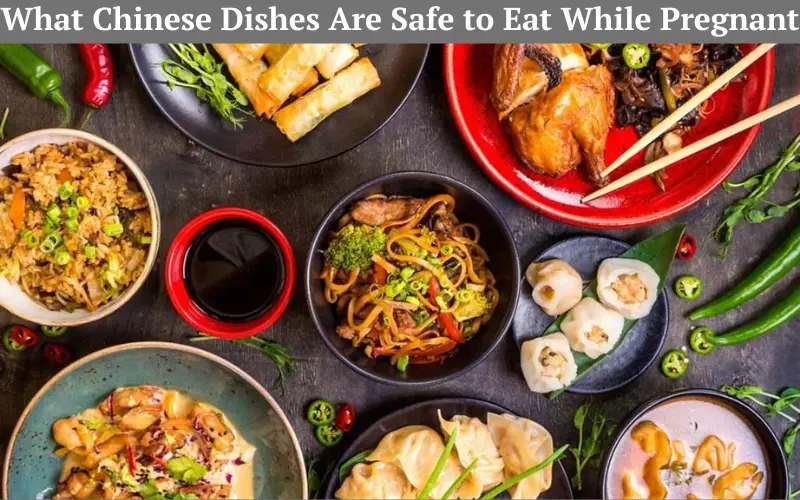
Chinese Foods to Avoid During Pregnancy
While many Chinese dishes can be safely enjoyed during pregnancy, there are some you should avoid due to potential risks. Here’s a list of specific Chinese dishes and ingredients that are best avoided:
- Raw Fish (Sushi): Some Chinese restaurants offer sushi, a definite no-go during pregnancy. Raw fish can harbour harmful bacteria and parasites, such as Listeria and Toxoplasma, leading to serious infections. It’s best to avoid sushi altogether and opt for cooked alternatives.
- High-Mercury Fish: Certain fish like swordfish, shark, and king mackerel, often found in Chinese seafood dishes, contain high levels of mercury. Mercury can affect your baby’s developing nervous system, so avoiding these types of fish is wise. Instead, choose low-mercury options like salmon or shrimp.
- Excessive Soy Sauce: While soy sauce can add flavour to your meal, it’s also extremely high in sodium. Excessive sodium intake can lead to water retention, high blood pressure, and other complications during pregnancy. If you must have soy sauce, use it sparingly or opt for a low-sodium version.
- MSG (Monosodium Glutamate): Many Chinese dishes are flavoured with MSG, a common food additive. Although research on MSG’s safety during pregnancy is inconclusive, some people are sensitive to it, experiencing headaches or nausea. To be safe, it’s best to request dishes without MSG.
- Street Food or Unhygienic Establishments: While Chinese street food can be tempting, it’s often best to avoid it during pregnancy. The hygiene standards may not be up to par, increasing the risk of foodborne illnesses. Stick to reputable restaurants where food safety standards are strictly followed.
Can You Freeze Chinese Food? Best Tips and Practices
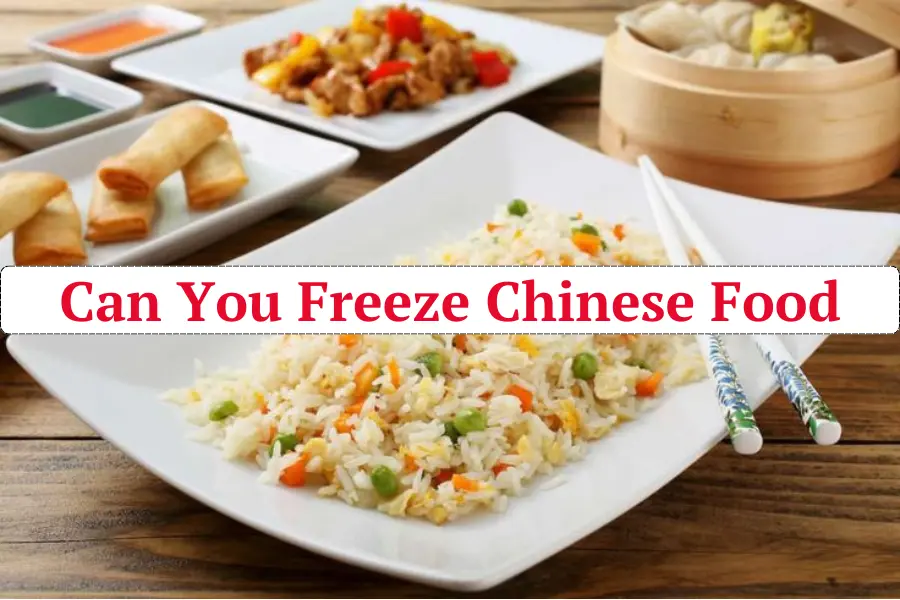
How to Make Chinese Food Pregnancy-Safe
Enjoying Chinese food while pregnant is entirely possible with a few simple adjustments. By making mindful choices, you can indulge in your favourite dishes while ensuring they’re safe for you and your baby. Here’s how you can make Chinese food pregnancy-safe:
Ask for Less Salt
Chinese cuisine often includes sauces and seasonings high in sodium, such as soy sauce. Excessive salt intake can lead to water retention and elevated blood pressure, which is best avoided during pregnancy. Ask the chef to use less salt or opt for low-sodium soy sauce when ordering. This small change can significantly reduce your sodium intake while allowing you to enjoy the flavours you love.
Avoid MSG
MSG (Monosodium Glutamate) is a common flavour enhancer in many Chinese dishes. While some people have no issues with MSG, others may experience headaches, nausea, or other symptoms. Since it’s unclear how MSG may affect pregnancy, it’s best to avoid it altogether. When dining out or ordering takeout, request that your meal be prepared without MSG. Many restaurants are happy to accommodate this request.
Ensure Meat and Seafood Are Thoroughly Cooked
One of the most important tips for making Chinese food pregnancy-safe is to ensure that all meats and seafood are thoroughly cooked. Undercooked or raw foods can harbour harmful bacteria and parasites that pose risks to your pregnancy. When ordering dishes like stir-fry, ask for the meat to be well-done. If you’re cooking at home, use a food thermometer to ensure meats reach a safe internal temperature (165°F for poultry, 145°F for fish).
Choose Healthier Cooking Methods
Opt for steamed, boiled, or stir-fried dishes with minimal oil. These cooking methods help retain the nutritional value of ingredients while reducing unnecessary fat and calories. For example, go for steamed dumplings or sautéed vegetables instead of deep-fried options like spring rolls. These choices make the meal healthier and ensure it’s easier to digest, which can be especially important during pregnancy.
Incorporate More Vegetables
Vegetables are a key component of a healthy diet during pregnancy. They provide essential vitamins, minerals, and fibre. When ordering Chinese food, choose dishes with a variety of vegetables. Broccoli, bok choy, snap peas, and bell peppers are all excellent choices. If you’re making Chinese food at home, consider adding extra vegetables to your recipes for nutrition.
Healthier Alternatives and Modifications
If you’re craving a dish that’s usually high in sodium or fat, consider making a few modifications:
- Swap White Rice for Brown Rice: Brown rice is a whole grain that provides more fibre, helping with digestion and keeping you fuller for longer.
- Use Low-Sodium Soy Sauce: This simple switch can reduce sodium without sacrificing flavour.
- Make Homemade Versions: Preparing Chinese dishes at home gives you complete control over the ingredients. You can use fresh, high-quality ingredients, adjust seasonings to your preference, and ensure everything is cooked thoroughly.
- Add Fresh Herbs and Spices: Instead of relying on salty sauces, add flavour with fresh herbs like cilantro, basil, or ginger. These ingredients not only enhance taste but also offer health benefits.
Do You Know!!
Chinese cuisine often incorporates nutrient-dense vegetables like bok choy and broccoli. These are high in folate, vitamin C, and fiber, all of which are essential for a healthy pregnancy. Including a variety of these vegetables can contribute to meeting daily nutritional requirements.
Nutritional Benefits of Chinese Food During Pregnancy
When chosen wisely, Chinese cuisine can be a nutritious addition to your pregnancy diet. It often features ingredients that are delicious and packed with essential nutrients beneficial for both you and your baby. Here’s a closer look at some of the key ingredients and their benefits:
Ginger
Ginger is a common ingredient in Chinese cooking and has been used for centuries for its medicinal properties. During pregnancy, ginger can be particularly helpful in alleviating nausea and morning sickness. It’s also known for its anti-inflammatory properties, which can support overall health.
Garlic
Garlic is another staple in Chinese cuisine that offers numerous health benefits. Rich in antioxidants, garlic can help boost your immune system, which is crucial during pregnancy. It also has cardiovascular benefits, helping to maintain healthy blood pressure levels.
Vegetables
Chinese dishes often incorporate a variety of vegetables, such as broccoli, bok choy, and bell peppers. These vegetables are rich in vitamins A, C, and K, fibre, and folate, which are vital for your baby’s development. Including a diverse range of vegetables can help you get various nutrients.
Balanced Diet with Chinese Cuisine
A balanced diet during pregnancy is essential for your health and your baby’s growth. Chinese cuisine can contribute to this balance by offering a mix of protein, healthy fats, carbohydrates, and plenty of vegetables. For example, a dish like chicken and broccoli stir-fry provides lean protein, fibre, and vitamins in one meal. By choosing nutrient-rich dishes, you can enjoy the flavours of Chinese food while supporting a healthy pregnancy.
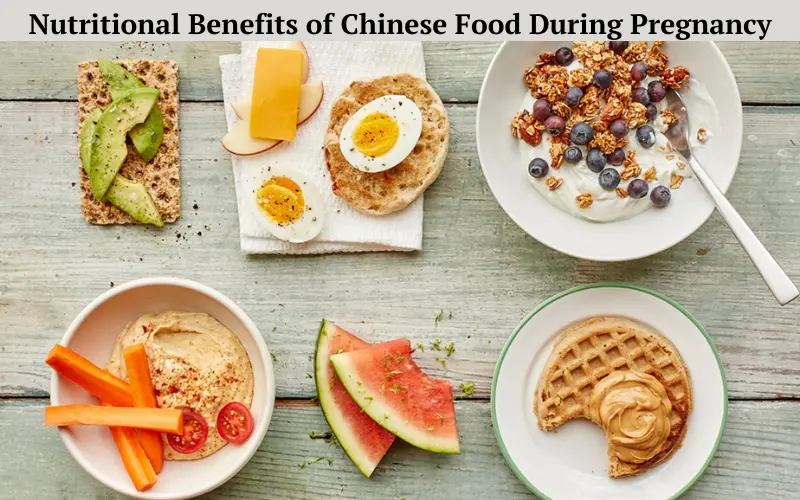
Conclusion
Chinese food can be a delightful part of your pregnancy diet, offering a variety of flavours and nutritional benefits. You can safely enjoy your favourite Chinese meals by making informed choices—such as opting for well-cooked dishes, reducing sodium intake, and avoiding high-risk foods like raw fish and high-mercury seafood. It’s all about balance and being mindful of what you eat.
Remember, every pregnancy is unique, and it’s always a good idea to consult your healthcare provider with any specific concerns or questions about your diet. They can provide personalized advice to ensure you and your baby stay healthy and happy throughout your pregnancy.

